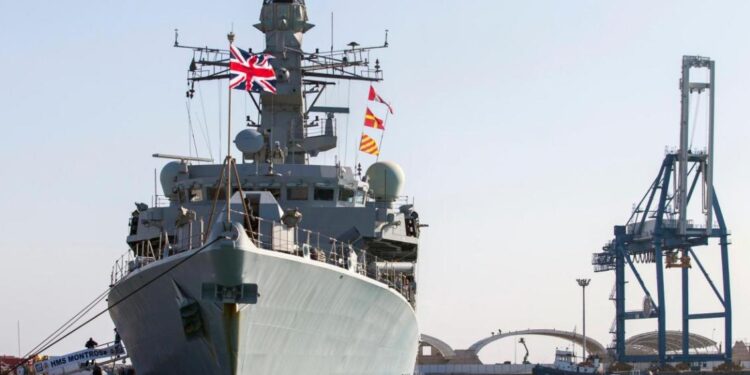British navy seizes advanced Iranian missiles headed for Yemen
The British government’s statement was surprising as it provided some of the most compelling results to date that Tehran is arming the Houthis against the Arab coalition with advanced weapons smuggled across the Persian Gulf.
The British Embassy in the UAE described the seizure of surface-to-air missiles and land attack cruise missile engines as “the first time a British naval warship has banned a ship carrying such sophisticated weapons from Iran.”
“The UK will continue to work in support of a lasting peace in Yemen and is committed to international maritime security so that commercial ships can transit safely without threat of interruption,” said James Heappey, Minister of the Armed Forces.
Iran’s mission to the United Nations did not respond to a request for comment.
The announcement signals an escalation as Western officials have avoided public statements in the past that definitively blame Iran for arming the Yemeni Houthis with military smuggling. The route of the smuggling shipments through the Arabian Sea or the Gulf of Aden, on the other hand, strongly suggested their destination.
Despite a UN Security Council arms embargo on Yemen, Iran has long been suspected of transferring rifles, rocket grenades, missiles and other weapons to the Houthis since the war began in 2015.
Iran denies of having armed the Houthis, independent experts, Western nations and the experts of the United Nations have traced the components to Iran.
Citing a forensic analysis last month, the British navy linked the batch of rocket engines seized earlier this year to an Iranian-made cruise missile with a range of 1,000 kilometers that the militia allegedly used against the Saudi Arabia.
The Houthis also used the cruise missile to attack an oil rig in Abu Dhabi in January of this year, the British navy said, an assault that killed three people and threatened the reputation of the key US ally as a paradise of stability. The US military launched interceptor missiles during the attack, signaling a widening of the war in Yemen.
The HMS Montrose helicopter was scanning illicit cargo in the Gulf of Oman on January 28 and February 25 when it spotted small ships departing from the Iranian coast with “suspicious cargo on deck”. A team of Royal Marines then stopped and searched the boats, confiscating their weapons in international waters south of Iran.
A US Navy guided missile destroyer supported the British warship’s February operation. Fifth Fleet Vice Admiral Brad Cooper said the seizure reflects the Navy’s “strong commitment to regional security and stability.”
The Houthis seized the capital of Yemen, Sanaa, in September 2014 and forced the internationally recognized government into exile. The Arab coalition armed with US weapons and intelligence joined the war alongside the government-in-exile of Yemen in March 2015.
Years of fighting ended in a bloody stalemate and pushed the poorest nation in the Arab world to the brink of famine. A tenuous truce that began around the Muslim holy month of Ramadan appears to hold, although both sides have accused each other of violations.

















